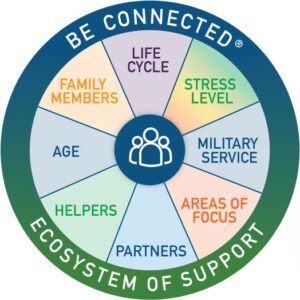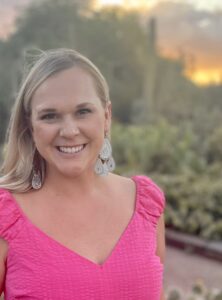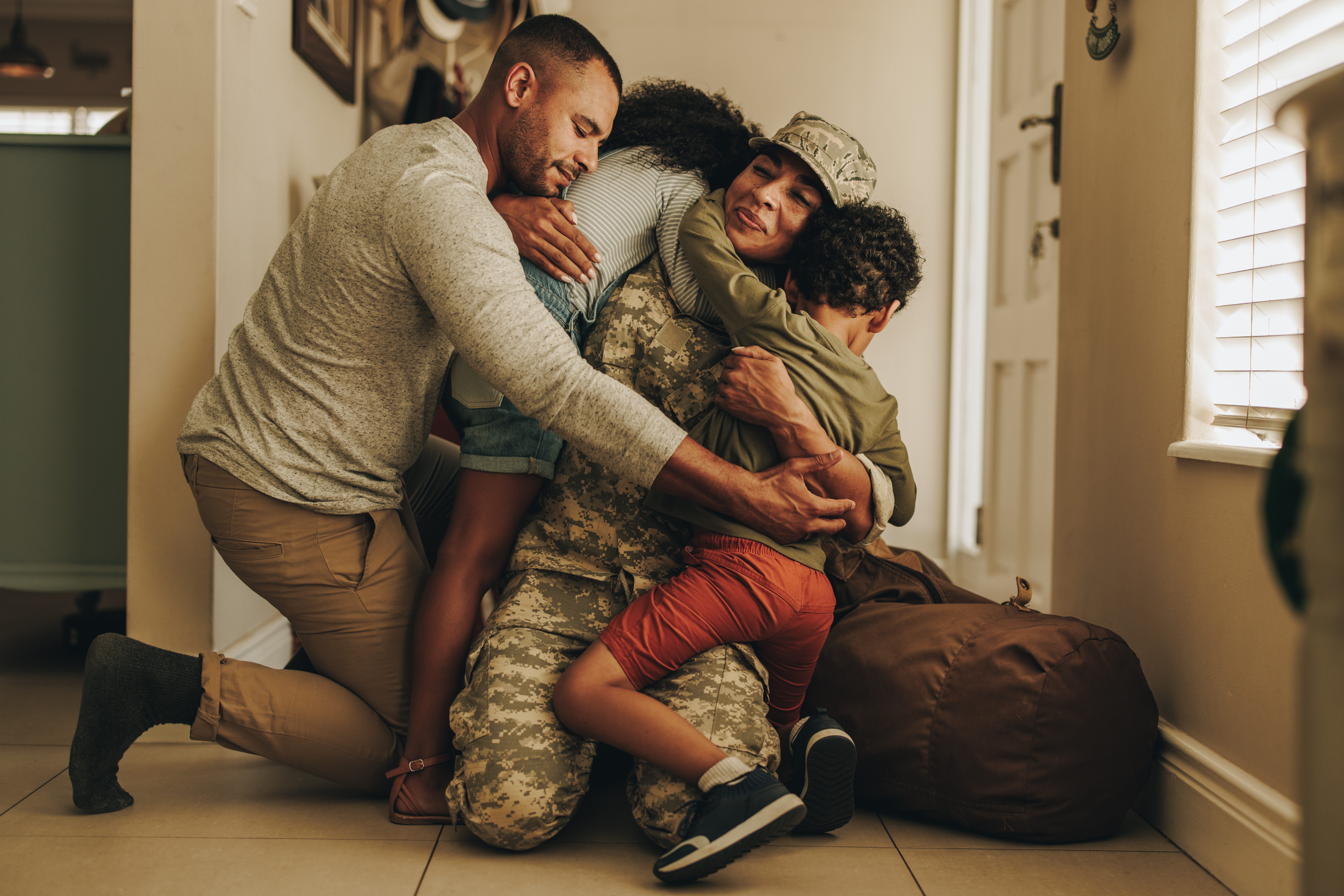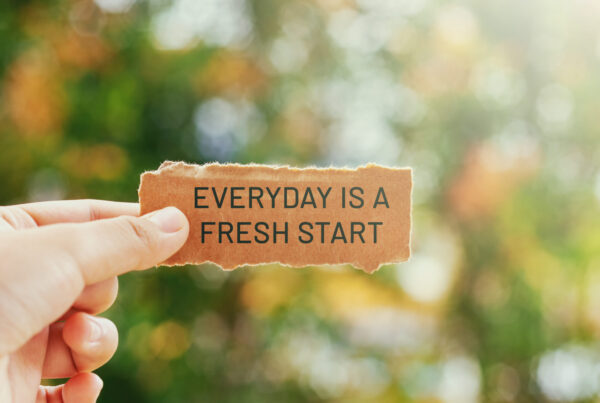By Jenny Rea, Ph.D.
Arizona is home to 500,000+ service members, veterans, and their families. I recently had the opportunity to attend the Arizona Coalition for Military Families’ 13th Annual Statewide Symposium in Phoenix. This annual event is Arizona’s only conference that brings together the military, government, and community. The symposium focuses on strengthening services and support for Arizona’s military-connected population.
As professionals, we know that every good conference revolves around one specific theme. This year, the Arizona Coalition for Military Families symposium focused on the social determinants of health for military families.
As part of their mission, following the Clay Hunt Act, the Arizona Coalition for Military Families launched Be Connected in 2017. The Be Connected program is a suicide prevention program for veterans, service members, and family members and focuses on an upstream approach. Specifically, the program uses the Be Connected Ecosystem of Support (image below) to focus on one area, or a combination of areas, to address stress, reduce barriers, or pursue new opportunities. The Ecosystem includes 10 different areas of focus for service members, veterans, and their families. The 10 areas of focus include basic needs, employment, family and social supports, finances, and benefits, higher education, housing and homelessness, legal, mental health and substance abuse, physical health, and spirituality.
Be Connected Ecosystem of Support (Arizona Coalition for Military Families, 2021)

From http://connectveterans.org/
Crisis intervention and mental health services provide critical support for preventing suicides. The Be Connected program goes further by thinking more broadly about preventing suicide. It works to prevent a mental health crisis before it occurs. The program supports service members, veterans, and family members on all factors of the health spectrum.
How might you use this model as you serve military members and their families in transition?
- We can listen and let them know they aren’t alone. Social connection is an important determinant of health for all individuals and families. Some military members find it difficult to relate to people who do not understand military culture and know what they have experienced (VA.gov, 2021).
- We can help them figure out their next step during a transition. Develop relationships with public and private organizations across your state to form collaborations. These collaborations help us connect military families with new resources as they transition.
- We can invite them to volunteer. Connect with Veterans Affairs (VA) medical facilities or state government veteran services. Include their institutional support in your suicide prevention efforts. In doing so, this connection may foster an opportunity for a service member, veteran, or military family member to volunteer in these efforts.
- We can support them in growing their careers. Connect with organizations and resources that assist with career readiness. Service members and their families make many transitions. They often move from state to state or from country to country. They also transition from active duty to reserve component or civilian life. Any help with career services we give benefits service members and their families.
- We can connect them to physical and mental health care. Continue to look for the best support and services with which to connect veterans. Use the social determinants of health in mental well-being and lifestyle to guide your efforts to help veterans.
References
- Be Connected Ecosystem of Support. (2021). Retrieved from http://connectveterans.org/ecosystem/
- Phillips, M. (2022). Be Connected. A Legislative Report of a Suicide Prevention Program for Service Members, Veterans, and Family Members in Arizona. Retrieved from https://arizonacoalition.org/wp-content/uploads/2022/07/Be-Connected-Legislative-Report.pdf
- Veterans Affairs. (2021, August 6). Common Challenges During Re-adjustment to Civilian Life – Veterans Employment Toolkit. https://www.va.gov/VETSINWORKPLACE/docs/em_challengesReadjust.asp
- Winkle, N. (2022, November 8). Upstream Prevention by Addressing Social Determinants of Health. Retrieved from https://www.getinvolved.az.gov/sites/default/files/meeting-documents/materials/acmf_bc_parents_commission_11-8-22.pdf
For more information on:
- Arizona Coalition for Military Families
- Be Connected: Help & Support for Arizona Veterans, Military, and Families
- Community Helper Training Series through Be Connected
- Suicide Awareness Content by OneOp
Blog Posts:
- Allen, Robyn. (2022, March 7). Social Determinants of Malnutrition. OneOp. [Blog Post]
- Astrin, Allison. (2023, February 11). Three Strategies to Better Meet Military Families’ Needs. (2023, February 11). OneOp. [Blog Post]
- Rea, Jenny. (2023, March 4). The Spectrum of Prevention: A Framework to Tackle Food Insecurity in Military Families. OneOp. [Blog Post]
Webinars (on-demand):
OneOp. (2023, April 26). Medicaid, Food Security, & the Social Determinants of Health & Well-being.
Authors Biography
 Jenny Rea, Ph.D., is a military spouse and mom of four kiddos under six years. Jenny consults with OneOp and is an Assistant Professor of Practice in the Department of Human Services and Director of the Certificate in Military Families at the University of Arizona.
Jenny Rea, Ph.D., is a military spouse and mom of four kiddos under six years. Jenny consults with OneOp and is an Assistant Professor of Practice in the Department of Human Services and Director of the Certificate in Military Families at the University of Arizona.
Photo Source: Adobe Stock













